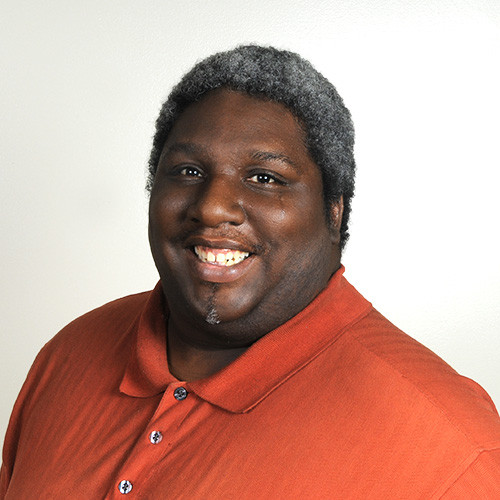Darren Linzie’s smile is as vibrant as the comic books he creates. Linzie, 47, has been drawing since the age of two. Drawing comics is one of his passions, but it also helps with his mental health.
“The cartoons put me at ease,” he explains.
Like comic books heroes, Linzie has gone through his own journey of hardship and triumph. He began experiencing symptoms of schizophrenia at 19. Around that time, he ran into a childhood bully at a Jack-In-The Box. He beat up Linzie and agitated him in elementary school. Linzie fled across the street after they recognized each other.
“I shriveled down in a ball and had a nervous breakdown,” he recalls. “That was my first breakdown. I was shocked. I couldn’t talk. I was crying hysterically.”
As his symptoms increased, so did his internalized stigma. Linzie informed people close to him that he experienced hallucinations while watching television and heard voices. But they didn’t believe him. .
“From the first time I went to the hospital in 1993 to the 2000’s, I suffered in silence for a long time.”
Over a period of 25 years, Linzie was in and out of mental institutions. He was also homeless for three years. But he still kept drawing and painting. Things started to turn around as he began accessing Alameda County Behavioral Health Care Services (ACBH).
The county’s Vocational Rehabilitation Program provided him his first job after being diagnosed. This program helps people who are recovering from mental health challenges, or substance use addictions, get back to work. Counselor Paul Rich and another staff person reached out to Linzie during his hospitalization at Villa Fairmont Mental Health Rehabilitation Center.
“I was in the hospital doing nothing, but then they gave me hope,” says Linzie.
Rich set Linzie up with a packaging job for Mother’s Cookies. Later, he had a “breakthrough” thanks to a schizophrenia class at Highland Hospital.
“First I was a shy person. I didn’t talk. After a year I decided to talk. I found time would go faster and the class was more fun. I kept talking and next thing I know I was in leadership roles.”
It was at Highland Hospital where he says fellow church members connected him to an empowering group called the Pool of Consumer Champions (POCC). The POCC is a peer support and peer-advocacy group. Their theme, “nothing about us, without us” speaks to their mission of making sure consumers have a voice in the mental health system and community.
Linzie broke out of his shell after attending various POCC events such as conferences, picnics, meetings and traveling to the state’s capitol to advocate for consumer rights. Meeting other consumers encouraged Linzie.
“Instead of living in silence, I started to speak out.”
Linzie has passionately spoken out through his art. Inspired by such artists as Dan DeCarlo of Archie and Morie Turner’s Wee Pals, his comic book characters are as diverse as his stories. He covers issues such as Bay Area history, racism, youth and he creates fun, fantasy books.
Of course his artwork also promotes mental health awareness. He has painted murals about wellness, including one at the Towne House Creative Living Center in Oakland. Hundreds of people have worn t-shirts he designed for the county’s annual We Move for Health. The fun, outdoor event promotes the importance of fitness and physical health for mental health consumers.
Add music artist to Linzie’s list of talents. In 2009, Linzie received an Alameda County Mental Health Service Act Innovation Grant to assist youth in recording hip-hop music about living with mental health conditions.
“We had people from Youth Radio come to us and be in the videos,” Linzie recalls. “I’m like a business man so I went to Rasputin and Amoeba Records and they gave me a chance to put CDs in the store.”
He even had star power on his side. The late singer and minister Denise Katrina Matthews, formerly known as Vanity, mentored Linzie during the project.
“I hadn’t made a professional recording so she stepped in and gave us advice.”
Darren Linzie’s future is full and bright. He does media and artwork for the Health and Human Resource Education Center in Oakland. He’s planning on recording a sixth album, this time with more of an R&B and gospel sound. Since his dream is to work for Pixar, he wants to enroll in computer animation classes soon.
Schizophrenia, like other diagnoses, comes with a stigma. The support Linzie continues to access through Alameda County Behavioral Health Care Services reminds him that his diagnosis doesn’t define him.
“They make me feel like I’m an important person,” he says of the services. “I’m just as good as the other people in Downtown Oakland that have a job and an office.”
Looking back at what he has overcome, it’s hard to disagree.
Written by Jeneé Darden


